Haub School Alumni Highlights
February, 2024
Caitlin McLennan (she/her)
Haub School Outstanding Undergraduate Spring 2020
Degree: Environment & Natural Resources (ENR) and Political Science, minor in Sustainability, 2020
Hometown: Spokane Valley, WA
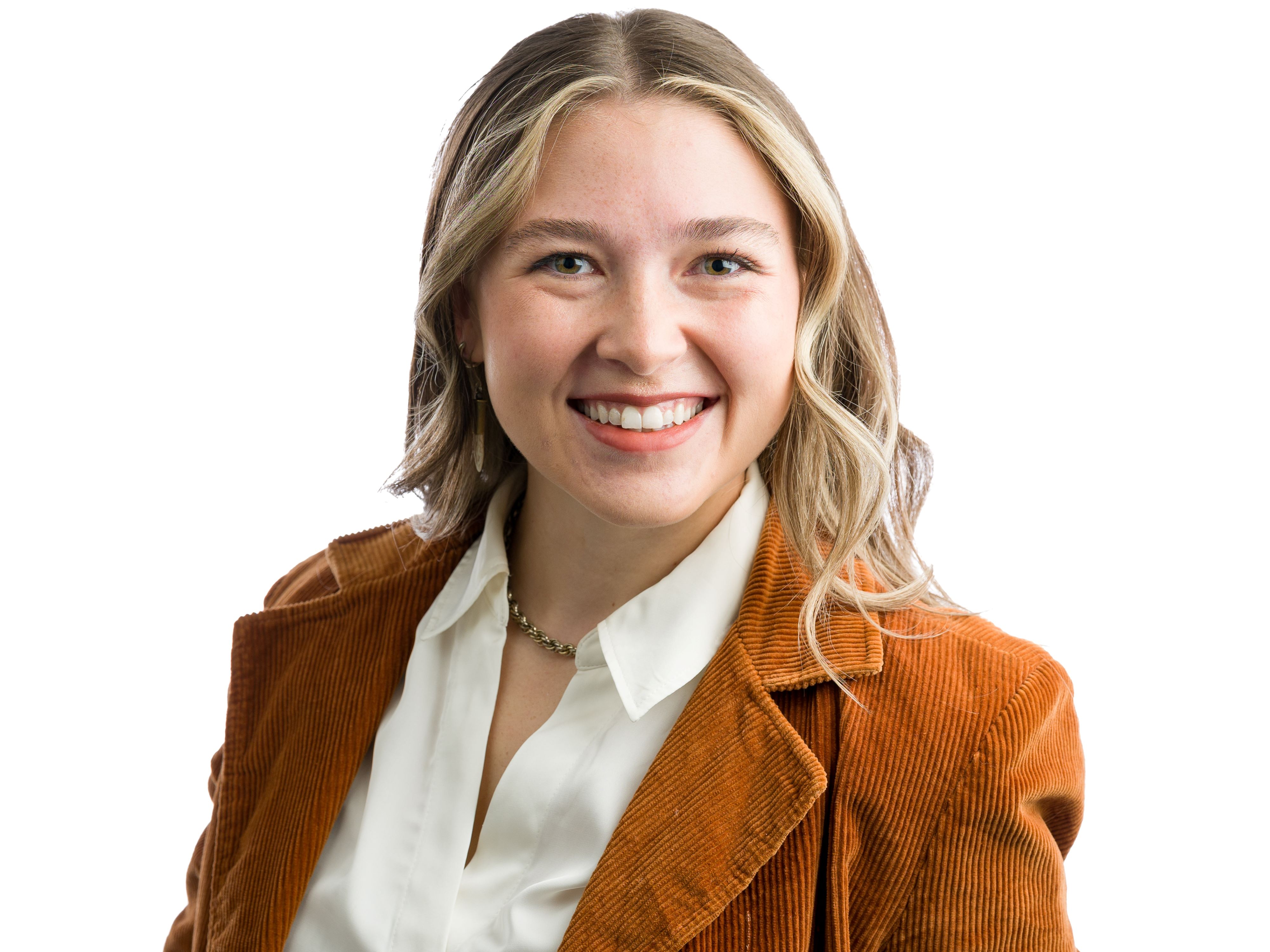
What position are you currently in?
“Right now, I am the Sustainability Program Manager at Utah State University. My position sits in facilities but it's my job to ensure sustainability permeates the entire institution, managing our Sustainability Council, working with faculty to integrate sustainability into our academics, and also working on our decarbonization, greenhouse gas emission reduction, accounting and net zero initiatives.”
How did you get there?
“Right after I graduated from the Haub School, it was during COVID. I stayed on with Dr. Rachael Budowle for about six months, working full time on our Food Security Task Force, doing some administrative support for her with classes, and mentoring students, that sort of thing.
I decided to go to grad school. I got my master's in Environmental Policy and Planning at Tufts University in their Urban and Environmental Policy and Planning department. I went to Tufts because I wanted to work on cities and the built environment, but I was also really interested in justice. Tufts is very community-engaged, community-driven, and justice-focused on racial and socio-economic equity. While I was at Tufts, I pulled a classic Caitlin move and worked a million jobs. I got to intern at the Trust for Public Land, where I did urban park building and urban conservation initiatives with majority Black and Brown neighborhoods in the Boston area. I also worked on the Massachusetts Municipal Vulnerability Program, which is a state-run grant program to provide municipalities support to do vulnerability planning, specifically interested in climate risk mitigation. They wanted to do a full program evaluation. I worked with them to understand how to better integrate justice principles, community equity, community decision-making, and actual community-based organization and municipal partnerships in that grant program.
I also worked a corporate sustainability internship at a mutually held financial institution, Bangor Savings Bank, and I developed a roadmap for sustainability based on the Task Force on Climate-Related Financial Disclosures (TCFD), Sustainability Accounting Standards Board (SASB), and Climate Change and Sustainable Development Sector (CSD) requirements. I kind of set them up to understand how to do the whole ‘sustainability thing.’ I did some toolkits, focusing on waste reduction, and impact investing. I worked closely to help develop their first greenhouse gas inventory.
I started looking for jobs in November of 2022, and I got a job in January of 2023. Halfway through the last year of my master's program, I moved to Utah because Utah State University needed a sustainability coordinator. Now I'm here and I finished my thesis. While I was working this job I defended in April, and I graduated in May of 2023. With my work, I also teach a class. I've never done it before and I'm excited! It's essentially all about getting a sustainability coordinator position at a municipality or at an institution like this: ‘What are the regulations you need to think about? What are the metrics you need to track? Who are the internal stakeholders you need to work with and then external stakeholders with outreach’ As well, building justice into all of that planning. ‘How do you build a strategy for your program?’ I'm putting together my syllabus right now!”
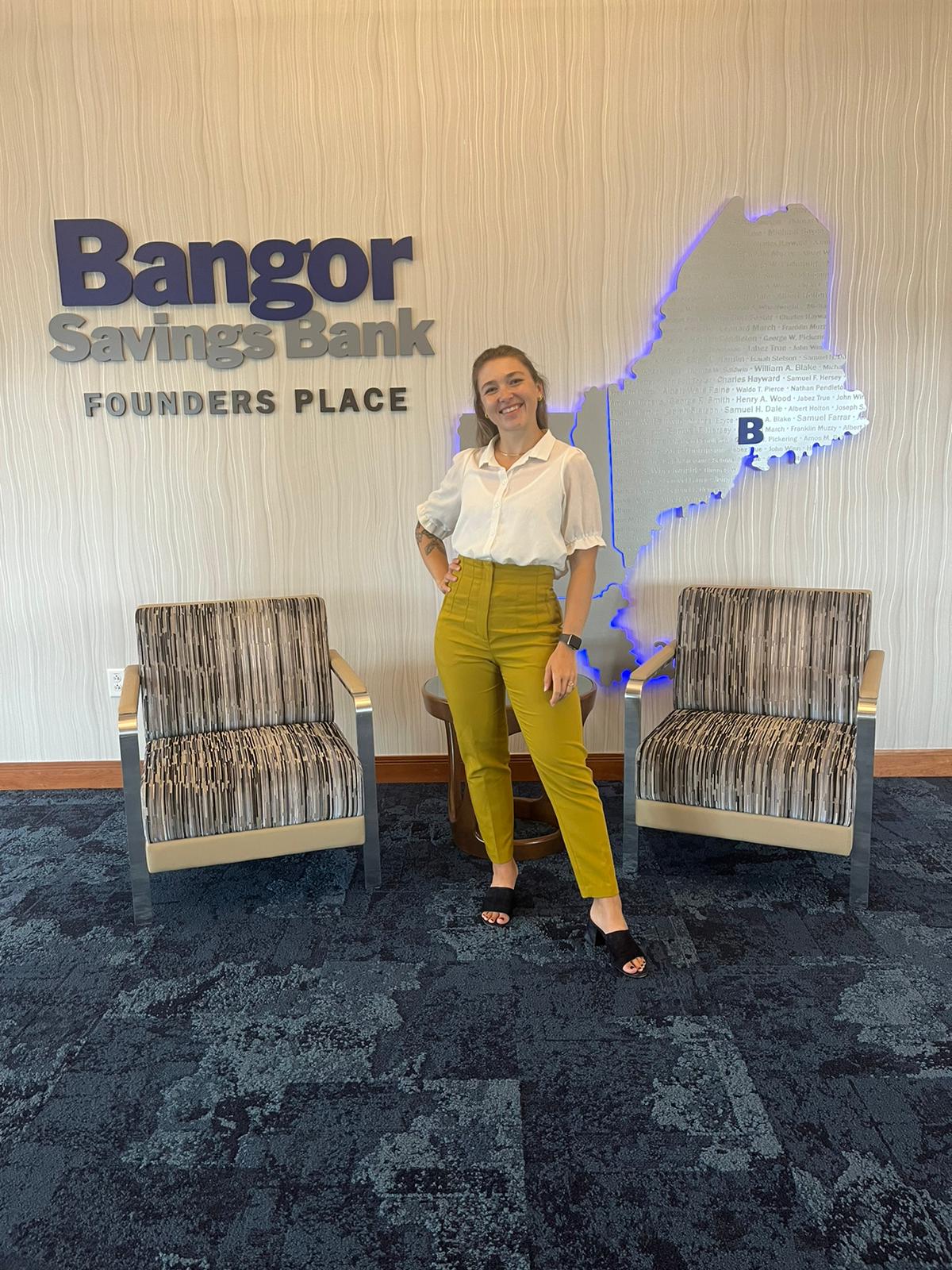
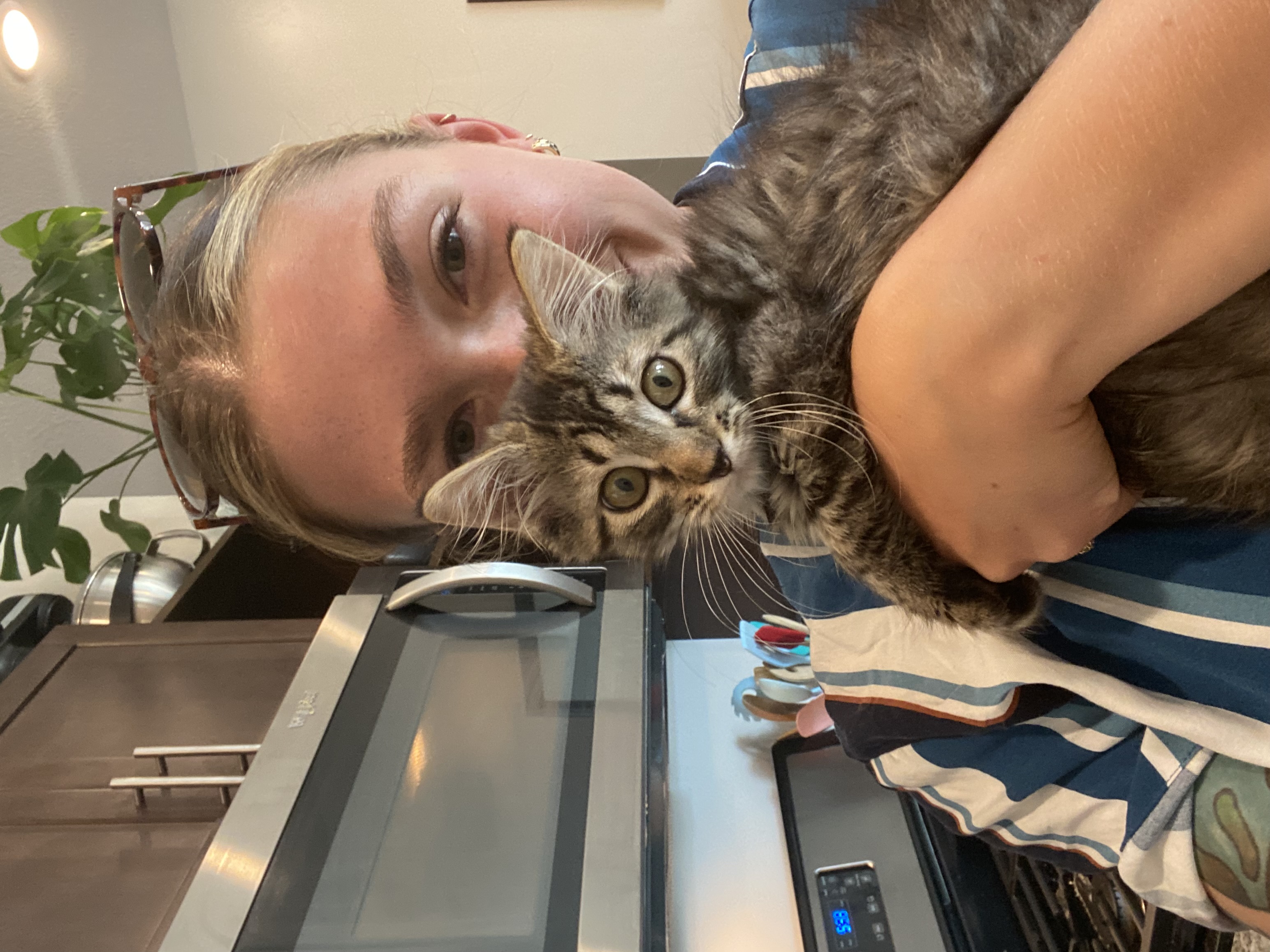
How did the Haub School prepare you for this career?
“I don't know who I am without the Haub School. Literally. I remember, in 2018 when I came to the Haub School. I went to musical theater school before I transferred to the University of Wyoming. That was my entire life until I was 18. When the 2016 election happened, I freaked out. I thought to myself, ‘I can't keep doing this, it's not jiving with my own personal beliefs.’ I wanted to go somewhere that would allow me to have as many international experiences as possible and that wouldn’t break the bank. I had already spent like $20,000 on musical theater school. I also wanted outdoor recreation opportunities, I didn't grow up going outside, that just wasn't a part of how I was raised. I was raised with a single mom… the list goes on and on. But I wanted that opportunity. I wanted to go somewhere that's a little remote and unlike anything I've ever done before. The University of Wyoming was on my list, and it was really easy to transfer my credits. All of the boxes on my list were checked off by the Haub School.
When I got there, I took Foundations of Sustainability in my first semester at UW. It felt like Rachael sought me out because I was always in class being chatty, involved, and interested. She cultivated that in my body. She paid attention to developing me as a practitioner of sustainability. Also, my scholarship capacity. She pushed me so hard, and anyone who worked with Rachael would say that. She's a very hard grader, she's a very hard feedback giver, and she's not going to let you get away with anything. This was so useful to me, my development with her as my mentor was insanity.
The advising at the Haub School was essential for me as a transfer student. They figured out how to make my credits work for me, while also giving me the foundation I needed to succeed. I think about the courses I took at the Haub School, even things that aren't super relevant to me now as a sustainability worker. For example, the course that Dr. Steve Smutko taught on Community Development and NEPA, helped me understand how to engage people around environmental management issues. A philosophy course taught me about the Commons and the Tragedy of the Commons and trying to manage all of it. That was so interesting and set a great baseline for what I wanted.
Also, being able to double major in the political science department and get a political ecology and political geography experience was fundamental for me as a policy nerd. I tried to create my own sustainability degree, at a school that didn't offer one. The Food Security Task Force molded me as a person as well as the Sustainability Coalition. Of course, we put our entire bodies into that, but we were supported! I don't know what it is, like, ‘What's in the water in Laramie?’ It gives you the ability to take everything on with whatever you want to do. We were able to figure out how to coalition build, which is such an essential skill. With sustainability, you have to understand how to talk to people. We did all of that through student government and in a very red state, which was awesome.”
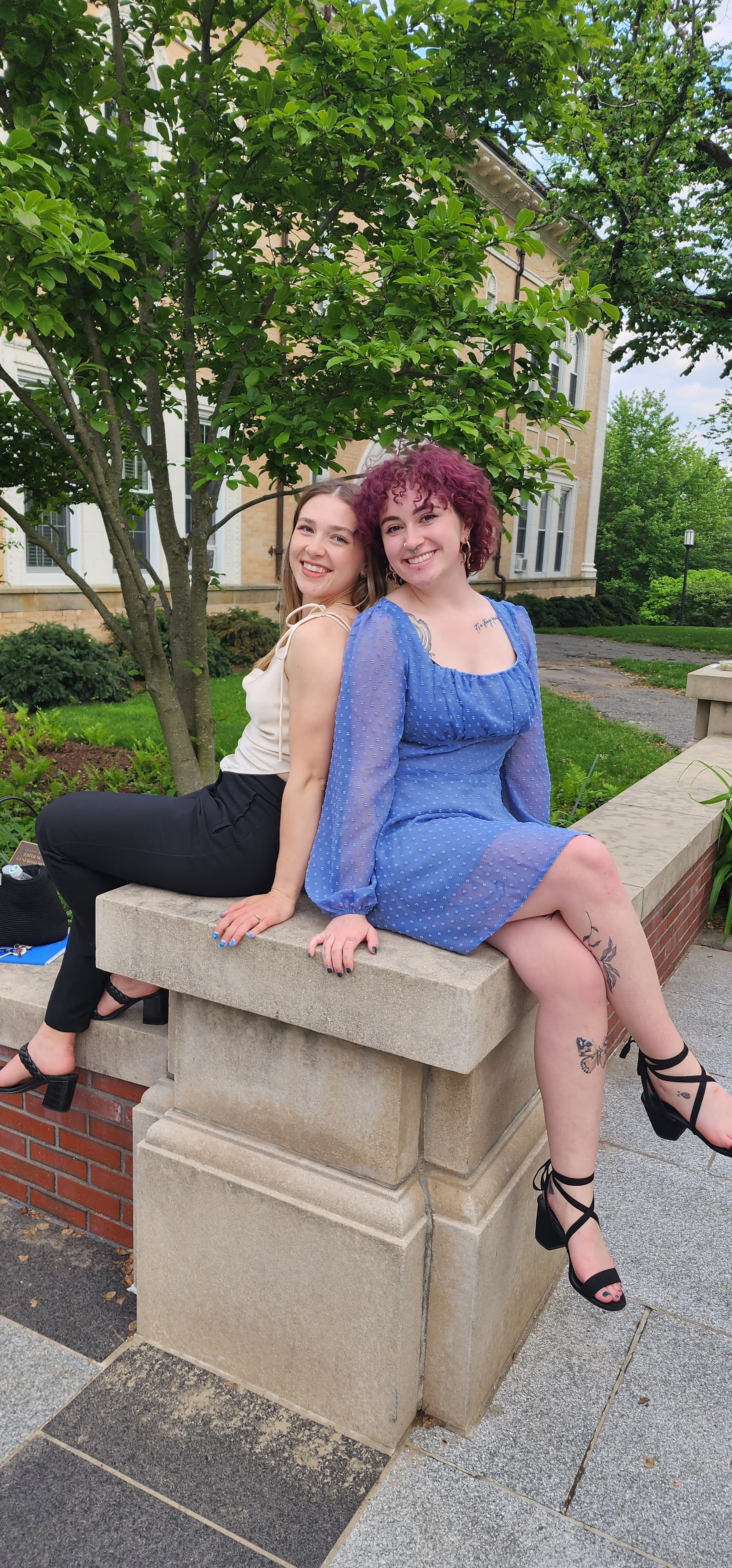
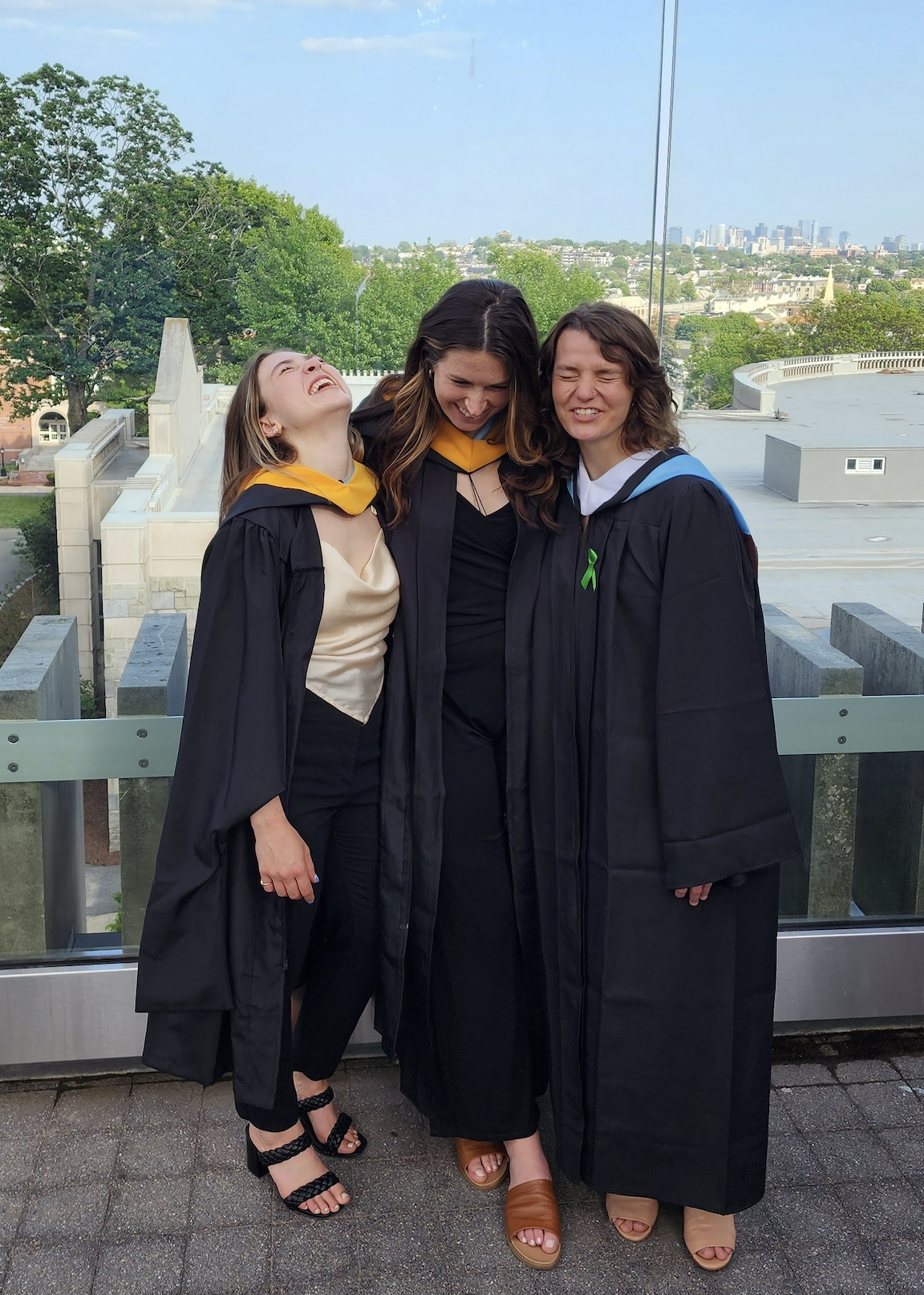
What were some of the most memorable experiences being a Haubie?
“The Canary Island trip was amazing. The Australia journey was insanity. Developing my personal relationships and my professional relationships with the faculty like Jeff Hamerlink was cool. I never would have met him if I hadn't gone. Both of those experiences showed me I can work on the built environment, I can do this. It also taught me to pay attention to people deeply. I like to think about sustainability as a framework for social change, and not just a framework for advocacy. With environmental responsibility, it’s something that allows us to create a better world and gives us the permission to go ahead and create systems that aren't going to put us in the same position. I think the Haub School cemented that to me through those journeys. Melanie Matthews did work to help me figure out how to pay for that, which was essential. I had no money and I was working full time at Coal Creek and the Crowbar, and she saw that hustle, so I owe a lot to her.
There are so many other fundamental experiences. Like the career conversations, I went to a lot of those and I still carry the information that I learned from those alumni with me today. That dictated how I approached grad school. The opportunity to be a research assistant with a professor who was doing sustainability work was really important. Working with her on those projects even though I didn't love transcribing interviews, they taught me a lot about how work happens. The fact the Haub School is a zero-waste office was essential, I learned more about how this actually looks. Getting people to integrate it into their culture and waste is a great way to start getting people to think about it every day, which then leads to bigger options. Of course the Pancake Breakfasts too!”
Did you have any mentors or advisors at the university who played a significant role in guiding your career path?
“Melanie Matthews, slay. Rachael Budowle, obviously, I owe that woman my life and still do. She's still my reference on everything I applied for. Having connections to grad students was important, they were really important mentors to me. I have to mention Zoe Pearson, she's in the Political Science department and she's amazing.
Who else? I would go into the Haub School and it felt like home. You go in and you're like ‘Wow, everyone I love is here right now with me.’ I'm sitting next to the fire, Melanie is asking me to come chat, and my friends are working at the front desk, it was really special. Who else is juicy and delicious there? Just the entire faculty and staff at the Haub School were wonderful. They made us feel like we were essential. I think that's what mattered at the end of the day. That's what empowered us to be really ballsy, for lack of a better word, in everything we did.”
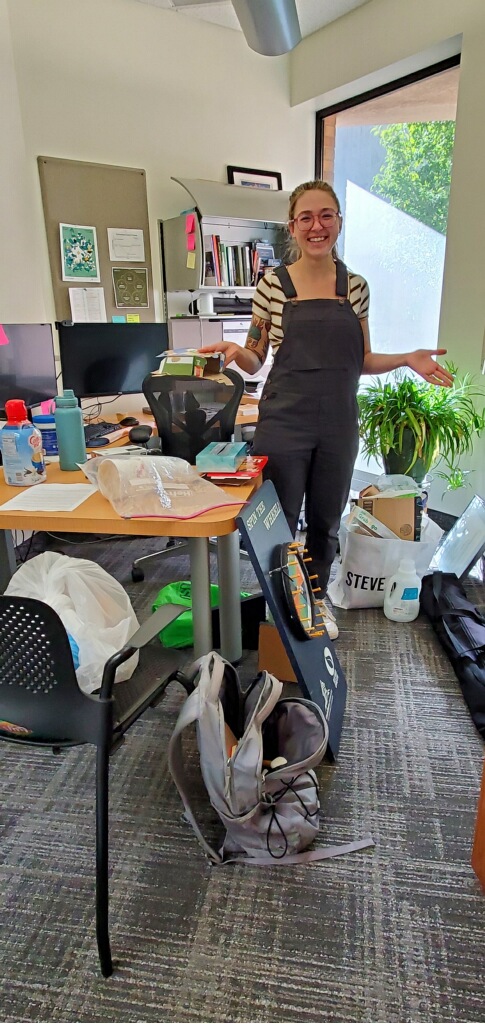
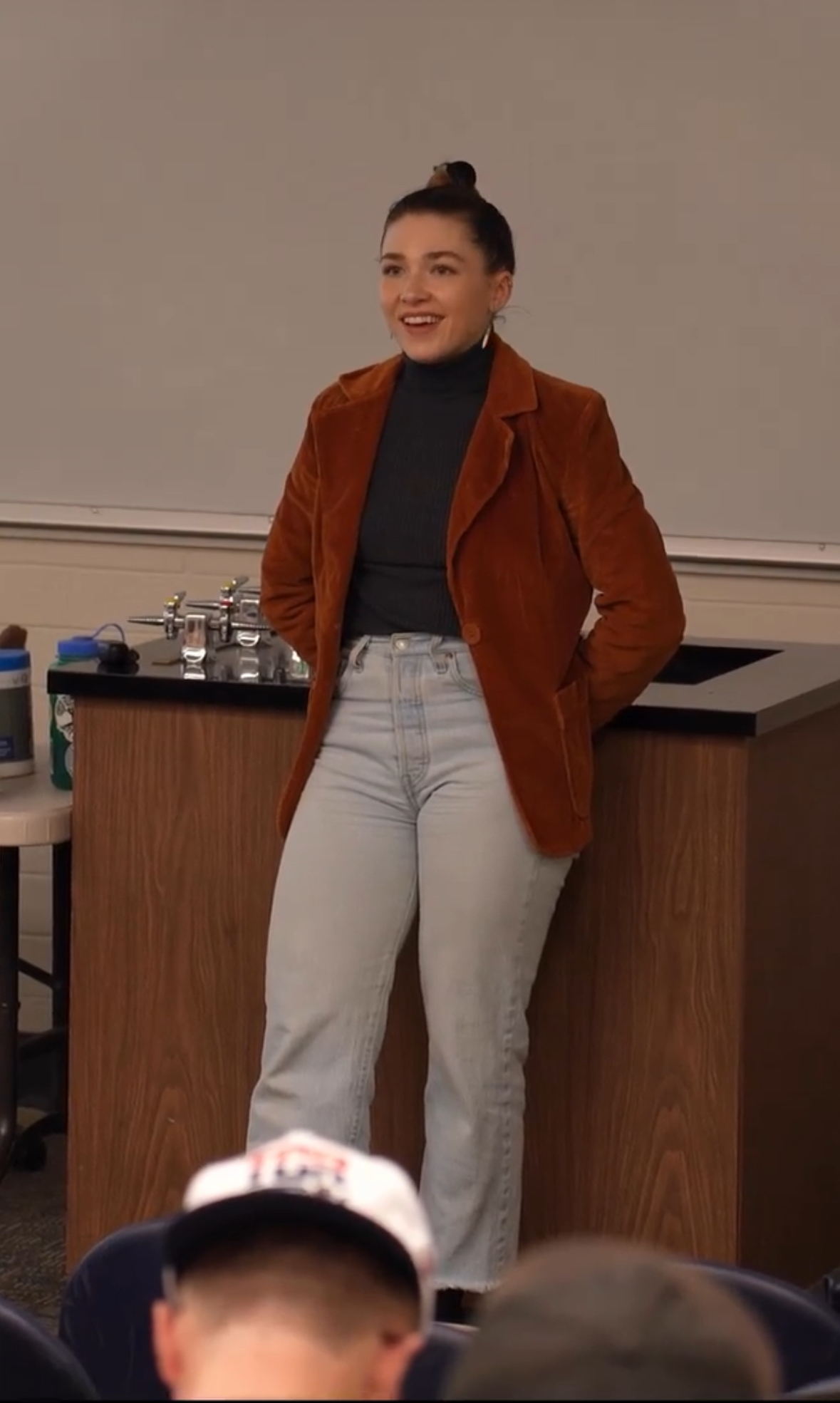
Describe the transition from being a student to becoming an alumni of the Haub school, how has your relationship with the school changed?
“First of all, I hate not being with the Haub School anymore. That has to go on the website! I did a slow burn transition because Rachel gave me work during COVID, which was great. Transitioning to Tufts was hard. Tufts is a much more progressive University and also a private school. It was interesting because you would think that a public school would have less of a connection to its students and less one-on-one mentorship, but it didn’t. I had a hard time at Tufts finding the kind of mentorship I wanted and connecting with my professors in the same way that I did at the Haub School. However, I was able to use the skills and the tools that I learned in my undergrad. We did some type of stakeholder mapping exercise in Steve Smutko's class that I showed people at Tufts. They were floored by some of the things that I had learned about and already knew. It helped me to lean into my education from the University of Wyoming while I was at grad school and not be afraid or timid about sharing what I knew. A lot of people didn't come from a robust sustainability background, which believe it or not, the Haub School has a freaking amazing sustainability program. Recognizing what I had learned at the University of Wyoming was essential to my success in grad school.
It took me a good three months to do that transition. All transitions are hard. But that transition was especially hard because I was used to walking into the Haub School and feeling like I was home. Going to a new school after that was difficult. Transitioning into the workforce as a sustainability worker was hard too. All I do is argue. But the Haub School empowered me to be myself and to be an activist in the workplace. That's important for sustainability professionals today because there's a lot of greenwashing going on. There's a lot of ‘we're doing so well!’ when they're not. It's not systemic change. To differentiate those two things is something the Haub School did well.”
What advice would you give to a current student or recent graduate?
“I feel like students talk a lot of smack when we're there! You have to realize that it's the place to be, I don't know what it is about Laramie. It's a sweet and delicious experience. You'll savor it forever. Once you do, really utilize the networking opportunities, the Haub School is going to provide you with a lot of opportunities to get exposure to internships, and networks at the university itself. Do strategy coalition-building work! Literally. My advice would be freaking lead the Sustainability Coalition because you will have the best professional development experience of your life. The Haub School practically hands out golden tickets, but you have to take them and you have to accept the responsibility. You have to be willing to accept the extra work, but if you put your whole self into your time with the Haub School, they will give back to you. That's definitely what I'd say is to make it work.
Once you've graduated and you're looking for a job, you can literally do anything from corporate social responsibility, to what I do at a university/municipality/state government level. We're set up well to work in the public sector from the Haub School, which is awesome. Lean into that interdisciplinarity that they offer, and then take hold of all of the different career opportunities. I tell my husband all the time, who is currently getting his undergrad, to talk to his professors, go to office hours, work with the people who are paid to work with you, and you will get the most out of your education. That's especially true in the Haub School, where they're so down to give you everything that they have in their brain, it's amazing.”
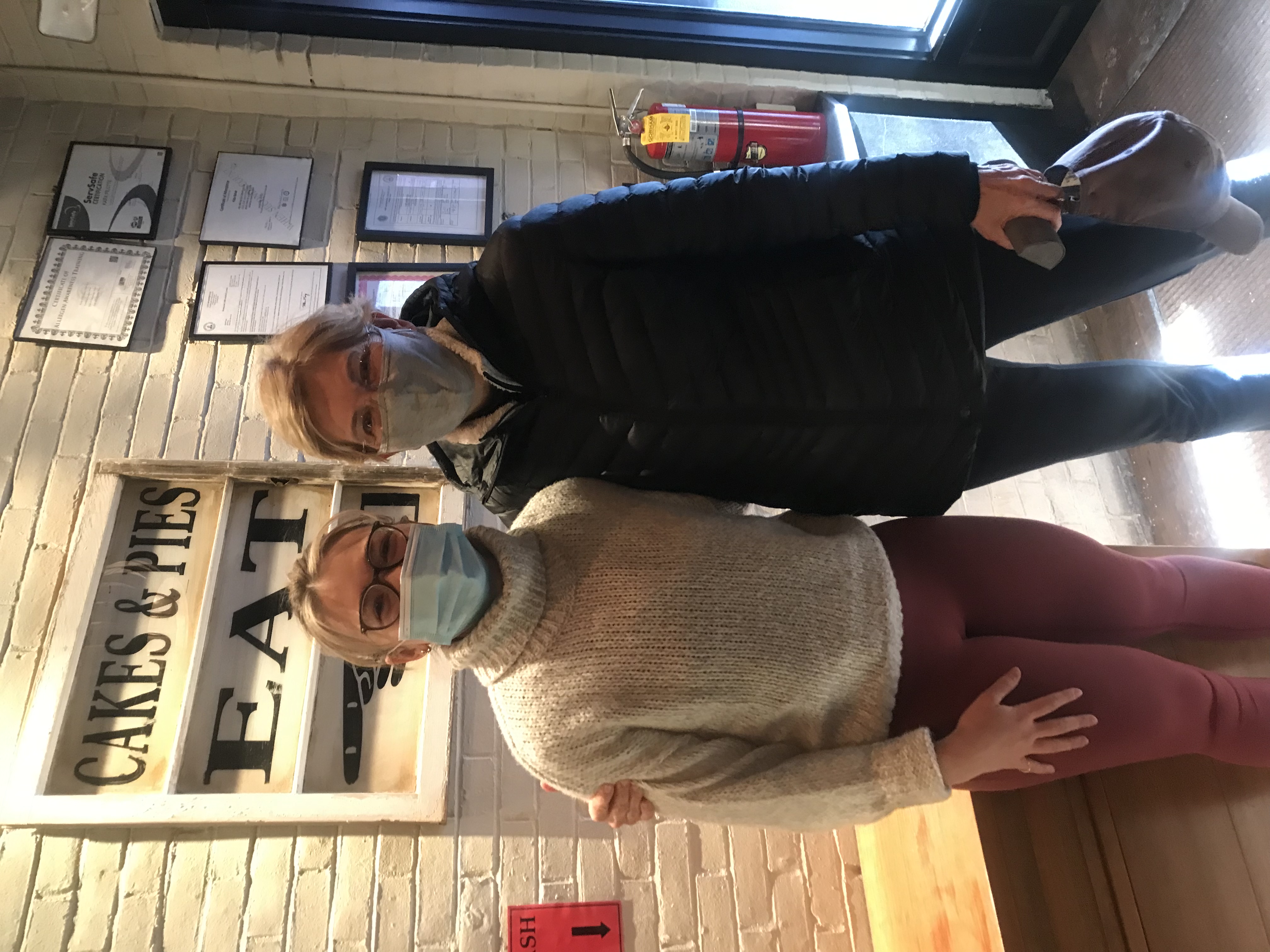
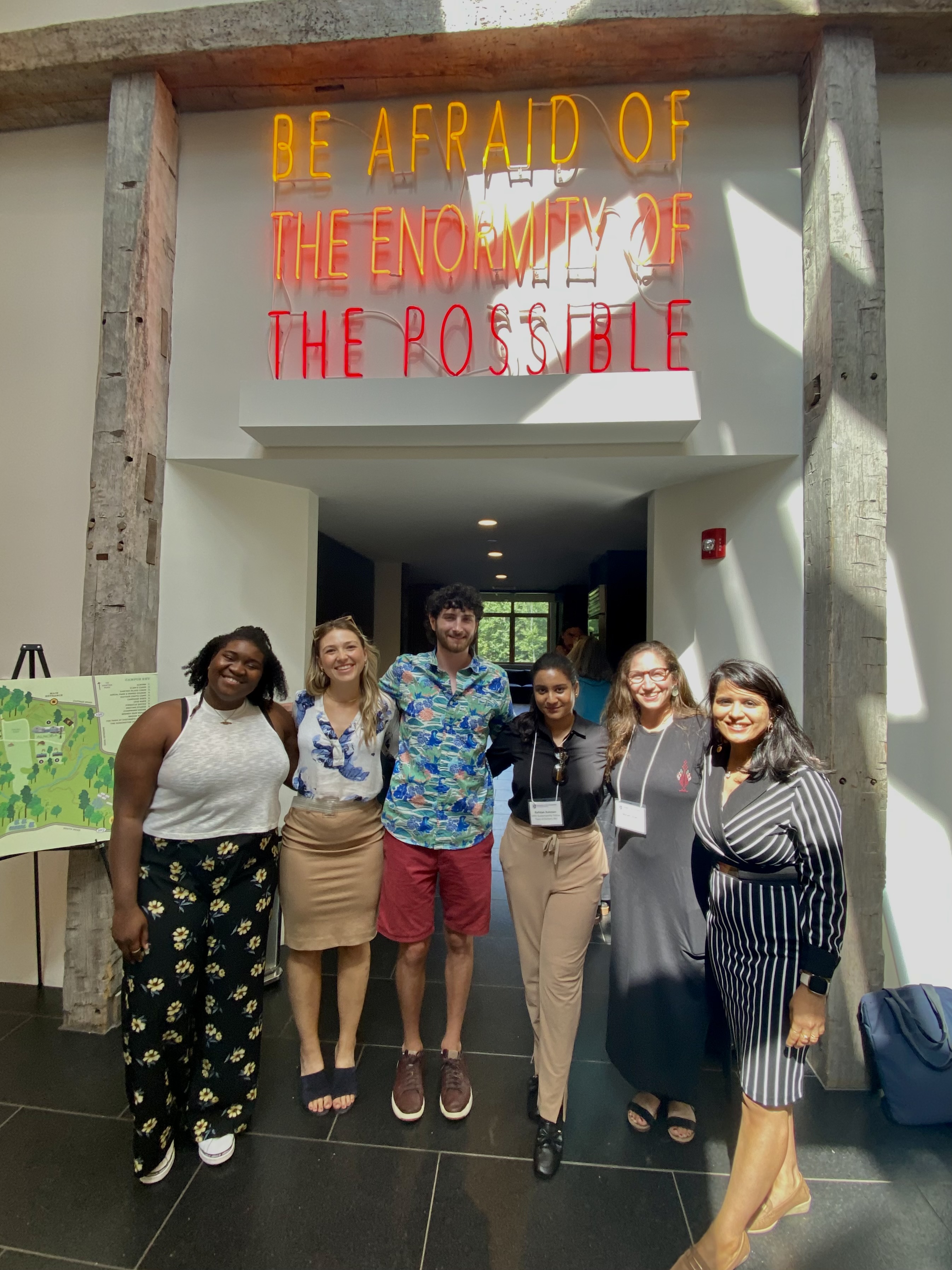
What professional and applied experiences did you have during your undergrad?
“The University of Wyoming Food Security Task Force was created during my tenure at the University of Wyoming, which is so cool. It was specifically co-created with the coalition and ASUW. Understanding how to work with different organization types was important. It was an applied learning experience for me to learn how to speak different professional languages. Other than that, I was working hard in my survival jobs. I leaned into coursework, coalition, and task force work. My research work with Rachel helped me understand what universities do and how they look.”
“I am a Haubie because I’m a collaborator, a communicator, and a climate worker. Specifically with climate, I'm not your conservation guy, I'm not doing wildland work. I'm interested in climate action, climate action planning, implementation, and decarbonization. I have a particular ability to talk to conservationists and sustainability people. That's what makes me uniquely able to do my job because of the Haub School’s location, collaboration, and climate work all together.”
Caitlin's story has been edited for length and clarity. All image credits go to Caitlin.

